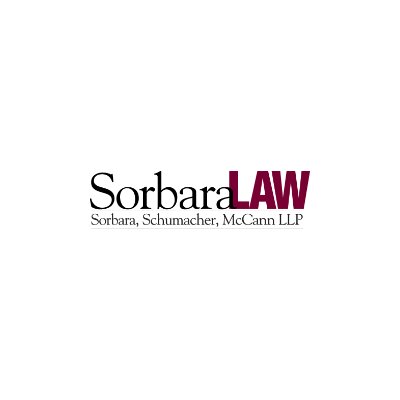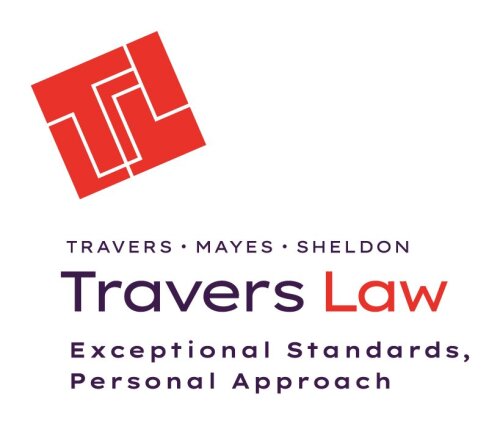Best ADR Mediation & Arbitration Lawyers in Waterloo
Share your needs with us, get contacted by law firms.
Free. Takes 2 min.
List of the best lawyers in Waterloo, Canada
About ADR Mediation & Arbitration Law in Waterloo, Canada
Alternative Dispute Resolution (ADR) refers to processes used to resolve disputes without resorting to traditional court litigation. The two most common ADR methods are mediation and arbitration. In the Waterloo region, ADR plays an essential role in resolving disputes in areas such as family law, commercial matters, employment disagreements, and community conflicts. Mediation emphasizes collaborative problem-solving with the help of a neutral mediator, while arbitration involves a neutral arbitrator who listens to both parties and makes a binding or non-binding decision. The focus of ADR in Waterloo, and in Ontario more broadly, is to provide effective, private, and quicker solutions to legal conflicts, reducing the need for lengthy court proceedings.
Why You May Need a Lawyer
Many people seek legal advice for ADR mediation and arbitration to ensure their interests are protected and their rights understood throughout the process. Common situations where legal assistance is valuable include:
- Commercial contract disputes - Employment disagreements or wrongful dismissal cases - Family law matters, including separation and child custody - Neighbourhood disputes or property matters - Disagreements between businesses, business partners, or organizations - Issues involving professional negligence or misconduct Even though ADR is designed to be less formal than court proceedings, a lawyer can help explain the process, assess the strength of your case, prepare necessary documents, and represent or guide you during mediation or arbitration sessions.
Local Laws Overview
ADR processes in Waterloo are governed by the laws of Ontario and relevant federal statutes. Some key aspects include:
- Mediation: In many family and civil cases, Ontario courts encourage or even require parties to attempt mediation before proceeding to litigation. Mediations are confidential and the mediator does not impose a decision.
- Arbitration: The Ontario Arbitration Act, 1991 regulates most private arbitration proceedings. Parties can agree to arbitration voluntarily or as part of a contractual obligation. Arbitration decisions (awards) can be binding and enforceable in court.
- Confidentiality: ADR sessions are typically private, with discussions and outcomes not disclosed unless all parties agree or as required by law.
- Enforcement: If an agreement is reached in mediation, it can become legally binding through a contract or court order. Arbitration awards can be enforced similarly to a court judgment.
Local courts and organizations in Waterloo support ADR to help reduce court congestion and foster amicable resolutions.
Frequently Asked Questions
What is the difference between mediation and arbitration?
Mediation involves a neutral third party (the mediator) facilitating negotiation and helping parties reach their own voluntary agreement. Arbitration involves an arbitrator who listens to both sides and makes a decision, which can be binding or non-binding depending on prior agreement.
Are mediation and arbitration mandatory in Ontario?
Mediation is mandatory in certain civil court proceedings in Ontario, such as in Toronto, Ottawa, and Windsor. While not always mandatory in Waterloo, courts can strongly encourage ADR. Arbitration is voluntary unless agreed upon by contract or ordered for specific disputes.
Will an agreement reached in mediation be legally binding?
If both parties sign a written agreement after mediation, it can be legally binding and enforceable like any other contract. Some agreements may be formalized by a court order if required.
Can I have a lawyer represent me in ADR?
Yes, you are allowed to have a lawyer represent you or provide guidance before, during, and after ADR sessions to ensure your rights and interests are protected.
How confidential are ADR sessions?
ADR sessions are generally confidential. Information shared cannot be used in court except in limited circumstances (e.g., threat to someone's safety). This allows parties to speak openly in the process.
What types of disputes can be handled through ADR in Waterloo?
ADR can address a wide range of disputes, including family matters, employment disputes, business and commercial conflicts, real estate issues, landlord-tenant matters, and more.
How much does mediation or arbitration cost?
Costs vary depending on the complexity of the dispute, length of proceedings, and selected professionals. Mediation often costs less than arbitration or court. Many mediators and arbitrators charge by the hour or offer flat-fee services.
How is an arbitrator or mediator chosen?
Parties typically agree on a mediator or arbitrator, often selecting someone with expertise relevant to the dispute. If parties cannot agree, organizations or courts may suggest a professional from an approved roster.
What happens if we cannot reach an agreement in mediation?
If parties cannot resolve their dispute in mediation, they are free to pursue other options, such as arbitration or traditional court litigation.
Can arbitration decisions be appealed?
Arbitration awards are generally final and binding, with limited grounds for appeal or challenge (e.g., procedural unfairness or lack of jurisdiction). Appeals are rare and only allowed in specific circumstances under Ontario law.
Additional Resources
- Waterloo Region Community Legal Services: Assists with legal information and may provide advice or referrals. - Ontario Ministry of the Attorney General: Offers information about ADR programs, family mediation, and court-connected services. - ADR Institute of Ontario: Provides directories of qualified mediators and arbitrators, training resources, and information about ADR standards. - Legal Aid Ontario: Offers legal support to eligible individuals, including for family law mediation. - Family Law Information Centres (FLIC): Found in courthouses such as the Waterloo courthouse, providing information about family mediation and legal processes. - Local law firms and private mediators/arbitrators: Many experts in Waterloo specialize in ADR across various fields.
Next Steps
If you believe ADR is appropriate for your dispute or have been invited to participate in a mediation or arbitration, consider the following steps:
1. Consult a Lawyer: Seek legal advice to understand your rights, the ADR process, and potential outcomes specific to your situation. 2. Gather Information: Collect all relevant documents and details regarding your dispute. 3. Research Professionals: Look for qualified mediators or arbitrators experienced in the type of conflict you are facing. 4. Discuss with the Other Party: Explore whether both sides are willing to proceed with ADR and the preferred process. 5. Contact Local Resources: Reach out to community legal clinics, legal aid, or the Ontario Ministry of the Attorney General for guidance. 6. Prepare for Sessions: Work with your lawyer to organize your case and set clear goals for the mediation or arbitration. Taking these actions can help ensure you are well-prepared for ADR proceedings and increase the chances of a favorable and efficient resolution.
Lawzana helps you find the best lawyers and law firms in Waterloo through a curated and pre-screened list of qualified legal professionals. Our platform offers rankings and detailed profiles of attorneys and law firms, allowing you to compare based on practice areas, including ADR Mediation & Arbitration , experience, and client feedback.
Each profile includes a description of the firm's areas of practice, client reviews, team members and partners, year of establishment, spoken languages, office locations, contact information, social media presence, and any published articles or resources. Most firms on our platform speak English and are experienced in both local and international legal matters.
Get a quote from top-rated law firms in Waterloo, Canada — quickly, securely, and without unnecessary hassle.
Disclaimer:
The information provided on this page is for general informational purposes only and does not constitute legal advice. While we strive to ensure the accuracy and relevance of the content, legal information may change over time, and interpretations of the law can vary. You should always consult with a qualified legal professional for advice specific to your situation.
We disclaim all liability for actions taken or not taken based on the content of this page. If you believe any information is incorrect or outdated, please contact us, and we will review and update it where appropriate.











